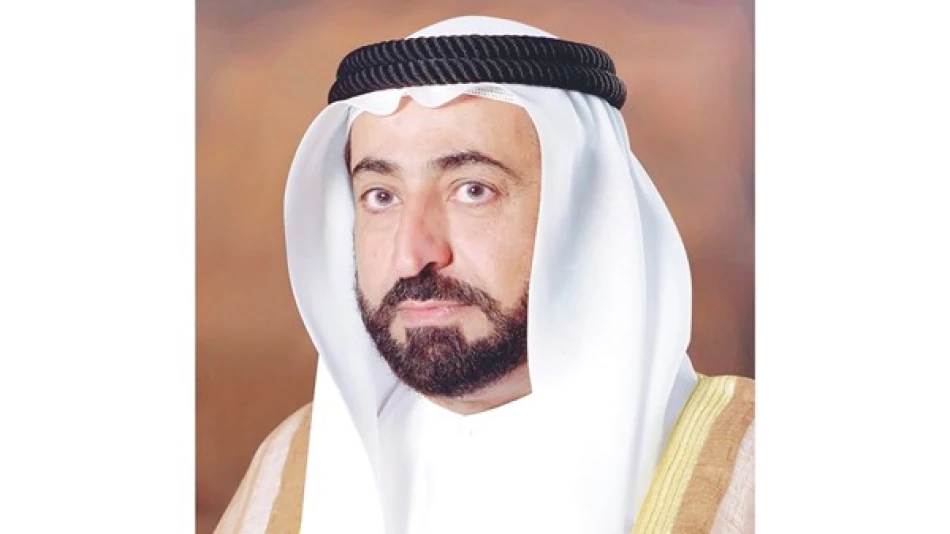
Sharjah Ruler Establishes Social Care Complex, Approves Decent Living Grant for Families
Sharjah Launches Ambitious Social Welfare Overhaul with $36.5M Annual Support Package
Sharjah's ruler has announced a comprehensive social welfare transformation that combines a massive new integrated care complex with substantial financial support increases for low-income families. The initiative will boost monthly assistance to ensure families reach a minimum dignified living threshold of AED 17,500 ($4,765) per month, while creating the UAE's largest unified social care facility.
A New Model for Integrated Social Care
Sheikh Dr. Sultan bin Mohammed Al Qasimi has ordered the construction of a groundbreaking Social Welfare Complex in the Ruwaiydat suburb, spanning 140,000 square meters. The facility represents a shift toward centralized care delivery, housing elderly care homes, children's social care facilities, mental health centers, and women's protection services under one roof.
The complex will feature comprehensive amenities including recreational facilities, essential services, a mosque, and gymnasium for residents. This integrated approach mirrors successful models seen in Nordic countries, where centralized social services have proven more cost-effective and provide better coordination of care.
Strategic Location and Scale
The Ruwaiydat location positions the complex to serve Sharjah's growing population while remaining accessible to families across the emirate. At 140,000 square meters, the facility will likely rank among the largest social welfare complexes in the Gulf region, reflecting Sharjah's commitment to comprehensive social support systems.
Financial Support Reaches New Heights
The emirate will increase financial assistance for 3,162 registered families, requiring an annual budget of AED 134 million ($36.5 million). Payments begin next month, targeting families with two or more members who have existing income but fall below the dignified living threshold.
The AED 17,500 monthly threshold represents a significant benchmark in regional social policy. This figure appears calculated to cover essential living costs in Sharjah's economy, including housing, food, healthcare, and education expenses for typical family units.
Regional Context and Comparison
Sharjah's approach contrasts with other Gulf states' social welfare strategies. While the UAE federal government and individual emirates have various support programs, Sharjah's integrated model combining infrastructure development with direct financial assistance creates a more comprehensive safety net.
The initiative aligns with broader Gulf trends toward economic diversification and social development, but Sharjah's emphasis on mental health services and women's protection reflects more progressive social priorities compared to traditional welfare approaches in the region.
Economic and Social Implications
The AED 134 million annual commitment represents substantial government expenditure that will likely stimulate local economic activity. Direct cash transfers to 3,162 families will boost consumer spending, particularly in essential goods and services sectors.
From a fiscal perspective, the program demonstrates Sharjah's financial capacity to sustain long-term social commitments. The emirate's diversified economy, including strong manufacturing and cultural sectors, provides the revenue base necessary for such extensive welfare programs.
Long-term Sustainability Questions
While the immediate impact appears positive, the program's sustainability depends on Sharjah's continued economic growth and revenue generation. The emirate will need to balance social spending with infrastructure development and business investment to maintain this level of support.
The success of this model could influence other emirates to adopt similar comprehensive approaches, potentially reshaping social welfare delivery across the UAE federation.
Most Viewed News

 Layla Al Mansoori
Layla Al Mansoori






